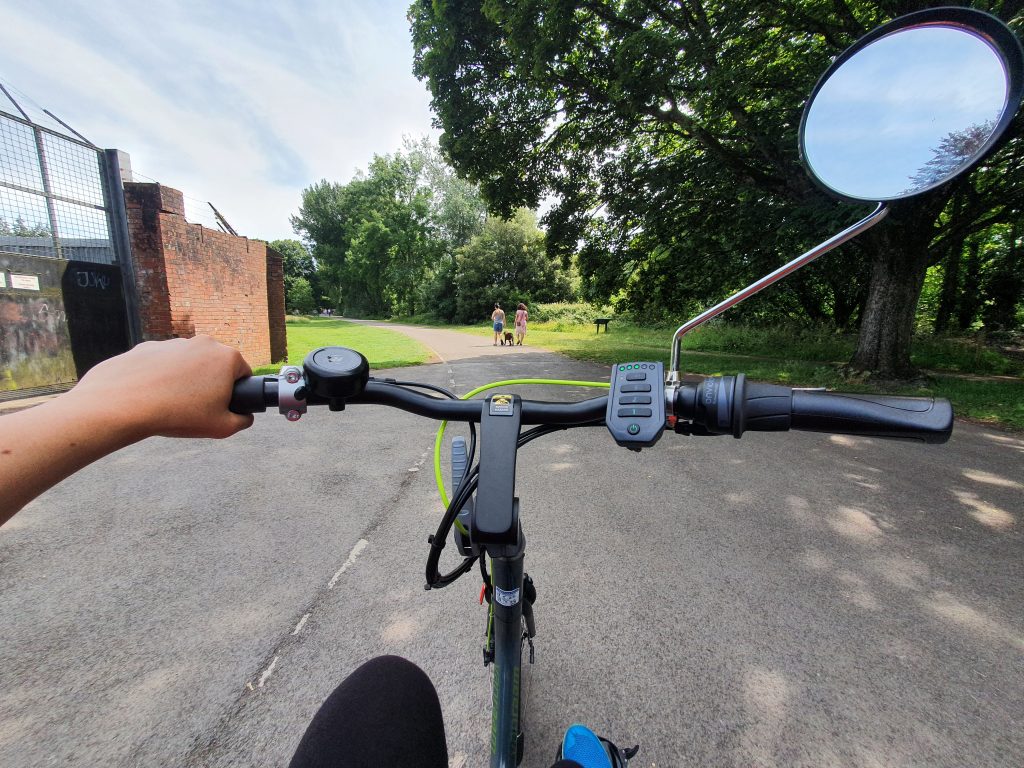Authors: Dr Lucy Baker, Dr Sarah Jones, Amy Nicholass, Prof Charles Musselwhite
With the ability to offer moderate levels of exercise intensity and to extend people’s mobility, the time they spend exercising, their autonomy, and opportunities to be out in natural and social environments, e-bikes and e-trikes offer numerous health benefits.

Summary
E- cycling has potential to enable access to active travel by overcoming some of the barriers people experience related to their fitness, health, ability and/or confidence. E-bikes offer the opportunity to be in control of power-assistance and therefore, intensity of exercise which helps people with health conditions and disabilities to cycle and therefore experience the health benefits of it.
Batteries help people to overcome steep inclines with confidence unlocking routes otherwise impossible to cycle, or improving the comfort and enjoyability of cycling. They afford the possibility of family oriented trips and have spurred the e-cargo bike market.
Barriers to overcome
However, there are several barriers to overcome in improving the possibilities of e-cycling.
- Infrastructure for cycling needs to be designed and adapted for the increasing use of e-bikes, e-trikes and e-cargo bikes taking into consideration a diversity of technologies and users aimed at improving safety and door-to-door experience.
- Secure, sheltered, over-night storage, parking and charging provision will be needed to suit the needs of various residential situations and different sizes of cycles.
- Subsidies, grants, interest free loans and accessible hire schemes could help to improve the affordability and inclusivity of e-bikes, e-cargo bikes, trikes and adapted bikes.
- Supportive social mechanisms that are educational and motivational would be particularly useful to introduce marginalised groups of people and novices to e-cycling. These services are mostly provided by charities and need greater financial support to develop more widely.
- There is a need for local authorities, enforcement agencies and other stakeholders, to increase resources in counteracting bicycle theft particularly with bicycle supply shortages, rising prices of cycles, and other cost of living and inflation rises.
To view the full article please follow this link: THINK Academy Publications – The Transport and Health Integrated research NetworK (THINK) (aber.ac.uk)
In the spirit of academic peer review, THINK welcome referenced response blogs to encourage open discussion. If you would like to write a response blog please email think@aber.ac.uk with the subject line 'Blog Response'